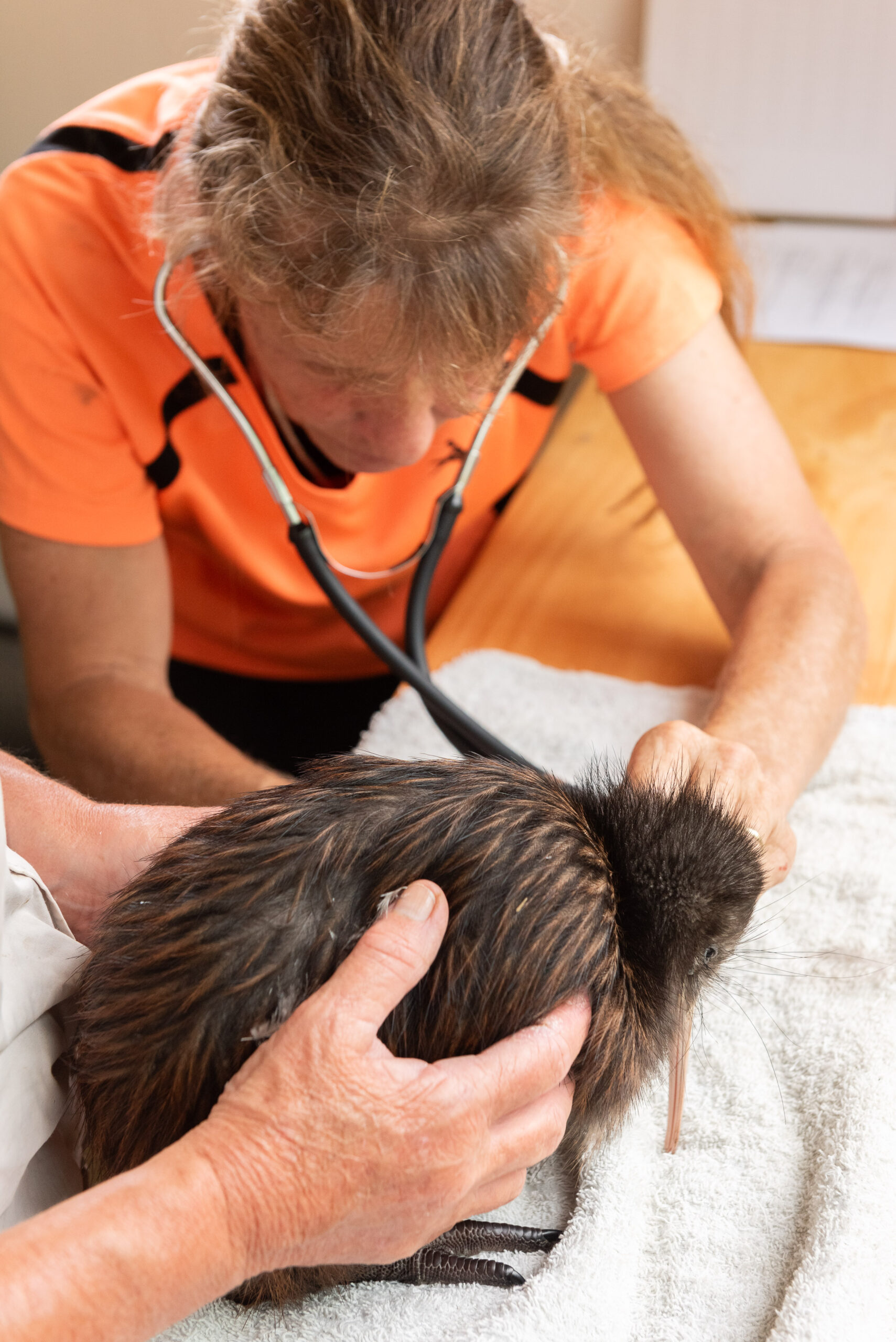A kiwi nicknamed “Splash” could not wait to try out our new Kiwi Rehab Centre before it’s official opening after getting into a spot of trouble.
Our new dedicated kiwi rehabilitation centre in rural Kerikeri has been built to provide care and support for the ever-growing Bay of Islands and Far North kiwi populations. It is set to be officially opened by local hapū Te Whiu in late February.
In areas where community groups are carrying out intensive pest control and looking after their dogs, kiwi numbers are on the rise.
While that’s welcome news, it also means more wild Northland kiwi are out and about each night, when they can be hit by cars, meet roaming dogs, or suffer misadventures such as falling into troughs and swimming pools – like “Splash”!
The new facility has been built on land kindly provided by a local farmer, in cooperation with Puketotara Landcare and local hapū Te Whiu. It has nine pens, each with a nesting box and native ferns and grasses, and a clinic with three brood boxes for quarantine and intensive care.
Andrew said that even though the facility was not yet officially open, one young kiwi couldn’t wait to try it out.
The kiwi had been exploring its territory at Opito Bay, near Kerikeri, when it managed to squeeze through a fence and fall into a swimming pool filter. He was discovered near death the following morning by a builder working at a nearby house site.
He rescued the bird, kept it warm and called a local conservation group, Kerikeri Peninsula Conservation Trust (KPCT), who took the kiwi to a vet and alerted Kiwi Coast.
The kiwi spent a few days at the rehab centre regaining his strength and being checked for fluid in his lungs before Kiwi Coast’s retired vet Lesley Baigent deemed him ready to be returned to the wild. Nicknamed “Splash”, he was released back into the bush at Opito Bay by Northland Regional Council Biosecurity officer Bernie Buhler and KPCT.
Kiwi Coast’s Mid North Coordinator Andrew Mentor was delighted by the bird’s recovery and return to its natural home.
“To see our first rehabilitated kiwi released back into the wild is just magic. On behalf of Kiwi Coast I’d like to extend a huge thanks to all those involved. Ngā mihi nui Foundation North for the core funding and all those who helped make this dream come true, including those who donated the use of the site, building materials, advice, time, labour and offered veterinary support.”
Andrew said prior to the new rehab centre, injured kiwi from the Bay of Islands and Far North had to be transported to the Native Bird Recovery Centre (NBRC) in Whangārei for treatment and recovery.
Andrew said “The NBRC has done an excellent job all these years. However the long trip adds extra stress to our already ailing patients. Saving them from that extra stress, may just save their lives.”
The Opito Bay incident was a reminder of the importance of making sure pool fences were not just child-proof but also kiwi-proof. Kiwi cannot swim in deep water so falling into a swimming pool was usually fatal. The Opito Bay kiwi survived because its head was above water, but it couldn’t get out and was hypothermic when found.
What can you do to help?
- If you find a sick or injured kiwi should call the 24-hour conservation hotline 0800 DOC HOT (0800 362 468) in the first instance.
- Kiwi can drown in ponds, swimming pools, and farm troughs. Ensure pools are kiwi proof as well as child proof, and add ramps or rocks to ponds and troughs so kiwi can climb out easily.
- Donate to the Kiwi Coast Rehabilitation Centre or become an ongoing supporter to help with vet costs, equipment and customised kiwi food!
Reporting for this article was provided by Peter de Graaf, RadioNZ



